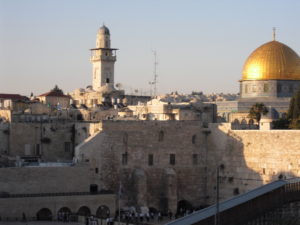Gary brings extensive experience as an international *Worldwork facilitator to his conflict resolution and organizational development work with a diverse range of organizations, such as non-profits, hospitals, schools, businesses of all sizes, government agencies, churches and other religious institutions.
He also leads town meetings on challenging and heated issues such as racism, sexual identity, environmental issues, conflict in the Middle East, and school violence.
Gary has a special interest in the Middle East, and under the auspices of the Global Process Institute, has provided regular conflict facilitation and training there for over ten years. His doctoral dissertation investigates a phenomenon he has frequently witnessed during this work: moments of unity and unpolarized recognition of common humanity that often suddenly occur even in the midst of terible violence and hatred and other such strong emotions. One of his main on-going focuses is to develop and teach the facilitation skills that encourage and support these moments of grace to emerge and be sustained.

*Worldwork is an attempt to work with the world’s issues, addressing them on the many levels of maifestation, which are all important. The ‘consensus reality’ level is based on problems, solutions, history, dates, facts, labels like terrorists, good and evil etc. Under this is the realm of dreaming .The world has an energy body of its own; the totality of this energy body we call the field. This body, this field, dreams. World work is our commitment to work on this field.
The world needs us to work on its issues, which are also our issues. By working on these issues, we work on conflict, and by working on conflict, we build community. One important framing of ongoing conflict in world work is that it is the group and the world trying to know itself, and in this process of getting to know each other, community develops. Many communities with conflict turn against themselves and hate themselves for being in conflict.
This work is based on outer work and world change, and also inner work and personal growth. One idea is that the world can’t change until some of us live those changes, which picks up on Ghandi’s ideas of world peace; that you must be the peace you want to create. In the middle of world work, we go from inner work to outer work.
As the work continues and diversity enters and strengthens itself in the community, we then have a growing sense of deep democracy. A deep appreciation develops for our own inner diversity, and for outer diversity. All parts have a space. Deep democracy means that every voice is appreciated.